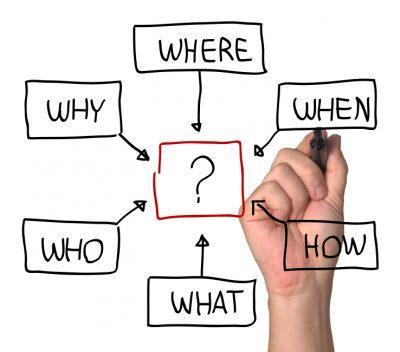
Customer Care is an essential part of every business, but arguably it is one of the most under appreciated. People are dealing with external and internal (fellow employees) clients daily. If you can’t handle them, your position with a company will be short lived.
With that, there are certain skills that every employee should master if they are facing clients. Without these, you’ll run a huge risk of angry employees and clients and lost business.
Fortunately, there are skills that every employee can master to drastically improve conversations with both internal and external customers.
Below I cover five skills that skills to master in this incredibly important position:
Listening
In my opinion, this should be number one on any list when dealing with customers of any kind. People want to be listened to and be understood. If we aren’t listening, bonding a rapport shuts down and little, if anything can progress in a relationship.
Most of us aren’t present in a conversation. We have other things on our mind, we are looking at our phones and aren’t concentrating on the conversation at hand. There are a few ways to be a good listener though. One is to be present in the moment. Put the phone down, stop trying to multi-task and listen to the person. Next, paraphrase what they were saying back to them to make sure you understand what is being said and to let them know you were engaged with them on the conversation. Also, let them finish their thoughts. Some of us like to jump in and cut off the people we are having the conversation with. This can come off as combative. Actively listen to get the full content of what someone is saying.
Asking Good Questions
In order for us to get to understanding a customer or their issue, we have to uncover what is going on. We do that through the quality or the questions we ask. If we are looking to uncover the problems, we need more than one word answers. For us to succeed, we need to start asking open-ended questions; questions that will allow a customer to elaborate on their answers. Open-ended questions start with the following six words (most of us learned these in the 4th grade):
Who
What
When
Where
Why
How
5 W’s and 1 H allow us to find out more beyond what’s on the surface. It also allows us to build a connection with our customer; to see that it is more than just an average interaction and that you care. The better the questions, the more help you can be to your customers.
Time Management
It's vital to spend time with internal and external customers; however, if you don't get them what they need in an efficient timeframe, it's over. They've moved on.
It's important for you to understand that there is a limit to the time spent with clients. It's important to know because not everyone you talk to, you can help. It's important to know who wants to be helped, as well as those outside of your knowledge area. There's no point in trying to be a hero, when you can't help them with their issue. The key: get them to someone who can.
Patience
Without patience, you don't ask good questions, listen well, or use time to yours and the customers' benefit. A lot of times when customers first engage with us, they are challenged, afraid, a bit scared or disturbed. They want a solution. It's important to note that a fast solution isn't always a great solution. We need to use our patience as a way to understand the customers’ needs and problems. Customers want you to figure out their problems, not rushed out the door.
Learning
Last of all, you truly need to have a willingness to learn. None of the aforementioned items come without work. Yes, some people seem to have some of these skills naturally; however, in order to hone these skills, people commit to learning more about their customers and how to effectively communicate with them. Some take courses, such as our Sandler Customer Care. Others read on a regular basis; some engage in seminars and online training. If you wish to be successful, being a lifelong learner is essential.
There are plenty of skills not mentioned that are important for customer service, but these five are essential for success. Try them. Improve them and see where your customer service skills take you.

